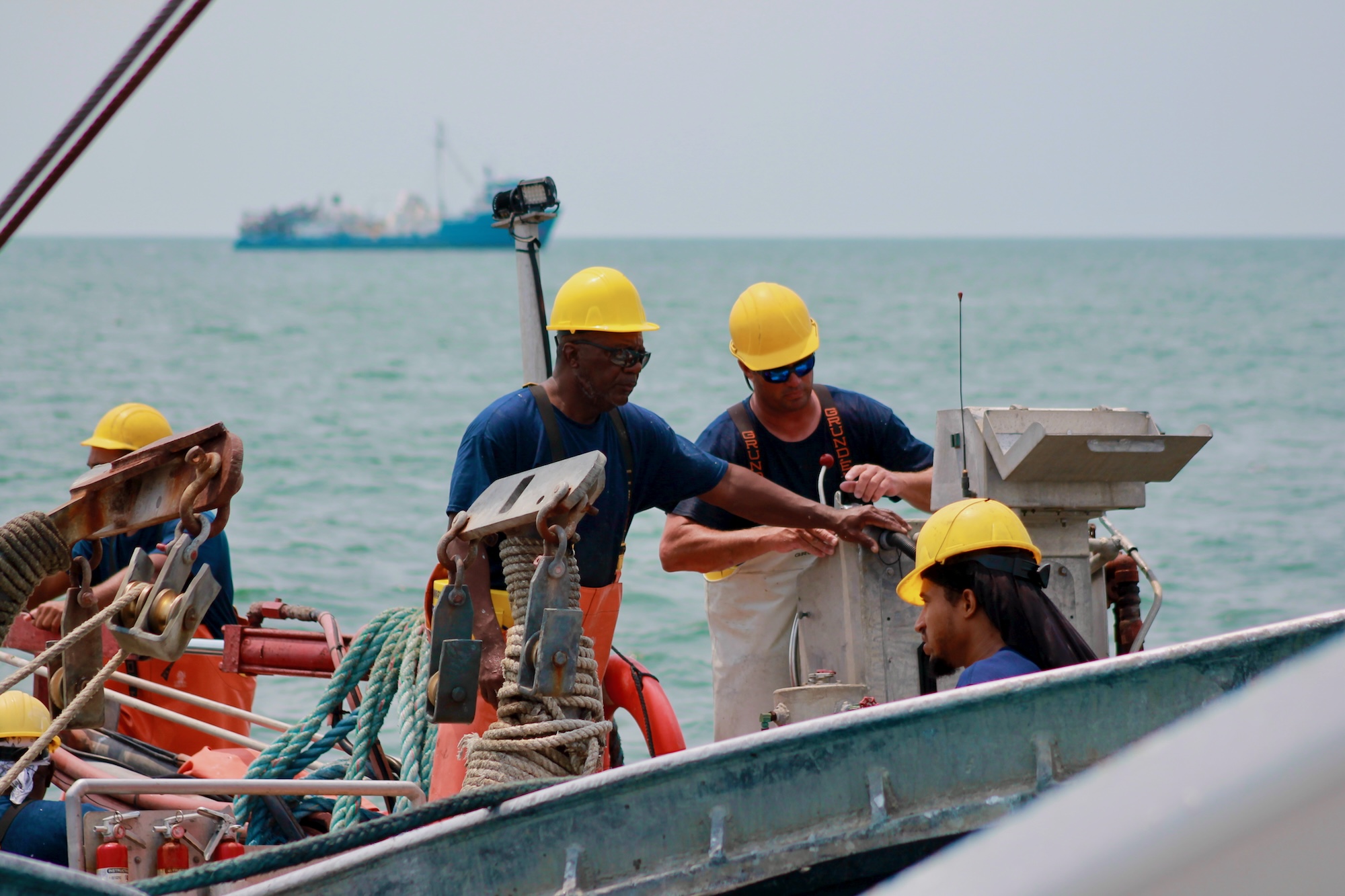Union Workers Urge Menhaden Regulators to Reject Environmental Misinformation and Protect Coastal Jobs
WASHINGTON, DC / ACCESS Newswire / May 2, 2025 /The six shop stewards representing union fishermen members of United Food & Commercial Workers (UFCW) Local 400 are calling on the Atlantic States Marine Fisheries Commission to protect working Virginia watermen and rely on science, not pressure from environmental and sportfishing advocacy groups, in their decisions next week. The call comes in a letter signed by the shop stewards to the Commission 's Menhaden Management Board, as the Commission will debate proposals that could threaten fishing jobs and communities.
The Menhaden Fisheries Coalition (MFC) supports these union fishermen, who work for MFC member Ocean Harvesters and whose livelihoods depend on the health of the menhaden fishery.

For generations, these fishermen and their families have sustainably harvested menhaden, and they take pride in fishing in a responsible way. However, they believe that in recent years, their experience, commitment, and voices have been pushed aside.
"Too often during public meetings on fisheries management, the voices of those of us who work directly in the menhaden fishery-and whose livelihoods depend on it-are dismissed as self-serving, and [we are] frequently perceived as the ‘bad guys, '" the fishermen write.
Meanwhile, they observe that environmental groups are often accepted as speaking on behalf of the public, simply because they claim to do so. "Regulators cannot responsibly accept the premise that environmental activist groups speak for the public interest simply because it says so on their website," they state.
The letter points to the Menhaden Chesapeake Bay Work Group as a prime example of this imbalance. The group was formed on the belief that the menhaden fishery is to blame for a decline in osprey fledgling survival, despite the lack of solid scientific backing supporting this claim. The letter also makes clear who is driving that message:
"That should not be a surprise given that members of this working group are led by employees of the Audubon Society and the Chesapeake Bay Foundation (CBF)."
And they argue, their motive is financial.
"These groups depend on contributions and grants that are easier to obtain when they can point to a crisis they claim to be addressing," the letter states, specifically calling out CBF for "fundraising using the osprey ‘crisis, ' blaming the menhaden reduction fishery as the sole culprit." The union leaders say this is not honest public-interest work-it is a self-serving fundraising tactic.
The letter also addresses criticism from recreational fishing organizations, drawing a line between working fishermen in the charter fleet and the large national groups behind the attacks.
"We have nothing but sympathy for the charter and for-hire sectors, comprised of hard-working watermen like ourselves. Notably, it is not the working fishermen, but industry organizations like the American Sportfishing Association and the Theodore Roosevelt Conservation Partnership that lead these attacks on us," the fishermen write.
They remind the Board that the science tells a different story, and that recreational overfishing is responsible for recent declines in striped bass. "ASMFC scientists have identified overfishing by recreational anglers-not the menhaden fishery-as the cause of recent striped bass declines."
The letter emphasizes that the menhaden industry has already made significant concessions. Since 2006, Chesapeake Bay harvests have been cut by nearly two-thirds. The fishery also helped develop and implement Ecological Reference Points (ERPs)-a science-based approach to managing menhaden with the needs of the ecosystem in mind. But because ERP implementation didn 't result in deeper harvest cuts, they say, the same groups are now moving the goalposts.
"No amount of science or common sense sways these groups from their mission: to put an end to our livelihoods," they write.
They also provide historical context. The closures of past reduction plants had nothing to do with overfishing-they were caused by coastal gentrification, political pressure, and low fish meal and fish oil prices. In fact, during the 1900s, when the reduction fishery operated at much higher harvest levels, "the Chesapeake Bay remained healthy and productive." The real damage came from nutrient loading, wetland loss, and DDT.
Now, with the fishery operating at its lowest levels in modern history, the union fishermen are clear: "We can sustain no further restrictions."
They urge the Menhaden Management Board to rely on the forthcoming guidance of the Menhaden Stock Assessment Subcommittee and the ERP Working Group, and to make decisions grounded in science-not in the manufactured narratives of activist groups.
The letter ends with a plea, asking the board to "recognize the financial and self-serving motivations of those who seek to eliminate our way of life and destroy our historic fishing communities."
About the Menhaden Fisheries Coalition
The Menhaden Fisheries Coalition (MFC) is a collective of menhaden fishermen, related businesses, and supporting industries. Comprised of businesses along the Atlantic and Gulf coasts, the Menhaden Fisheries Coalition conducts media and public outreach on behalf of the menhaden industry to ensure that members of the public, media, and government are informed of important issues, events, and facts about the fishery.
Press Contact
Stove Boat Communications
(202) 333-2628
contact@stoveboat.com
SOURCE:Menhaden Fisheries Coalition
View the original press release on ACCESS Newswire
© 2025 ACCESS Newswire. All Rights Reserved.



















